Democratic Hopes in ASEAN Hinge on Thailand, Analysts Say
25 March 2019
- Luke Hunt
- VOA News
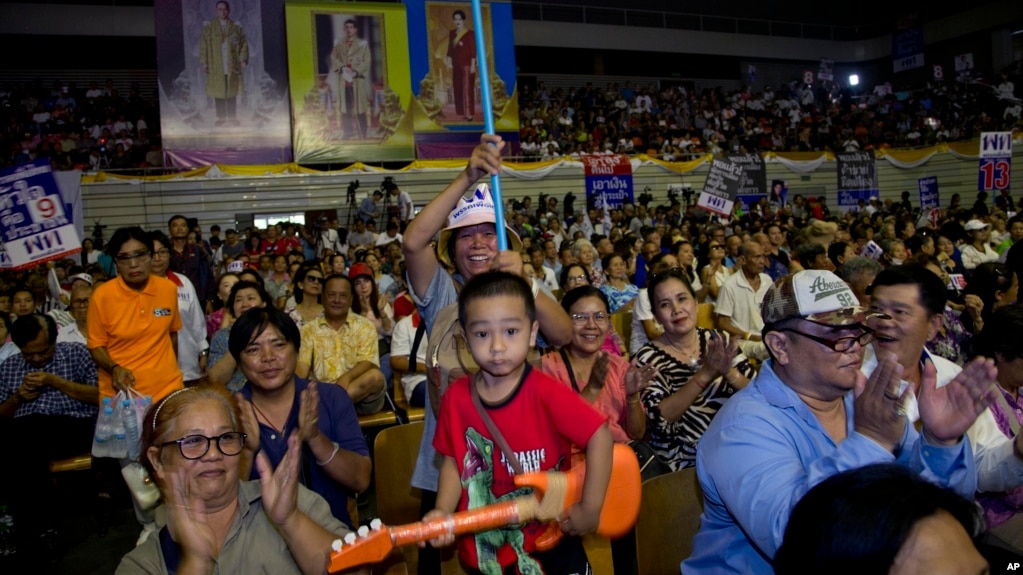
BANGKOK —
Thai voters head to the polls Sunday for the first time in nearly five years, and analysts say the results could have an impact on democracy throughout Southeast Asia.
Thailand’s military junta took power in May 2014, when then-army chief Prayut Chan-ocha led a coup that toppled the government. Observers see the coming elections as a struggle between democracy and military rule.
ការបោះឆ្នោតក្នុងប្រទេសថៃនៅថ្ងៃអាទិត្យខាងមុខ ត្រូវគេរំពឹងថានឹងមានចំនួនមនុស្សចេញទៅបោះឆ្នោតច្រើននៅភាគខាងត្បូងប្រទេស ដែលទីនោះគឺជាកន្លែងប្រឆាំងនឹងយោធានៅក្នុងតំបន់។ ប៉ុន្តែក្រុមអ្នកបោះឆ្នោតនិងក្រុមប្រឆាំងព្រួយបារម្ភថា ការបង្រ្កាបដោយរដ្ឋាភិបាលទៅលើសំឡេងប្រឆាំងនឹងធ្វើឲ្យពួកយោធាគ្រប់គ្រង ប្រទេសមួយអាណត្តិទៀត។Prayut, now seeking the premiership, has said that if he wins, voters would be returning his junta-led country to a “democracy.”
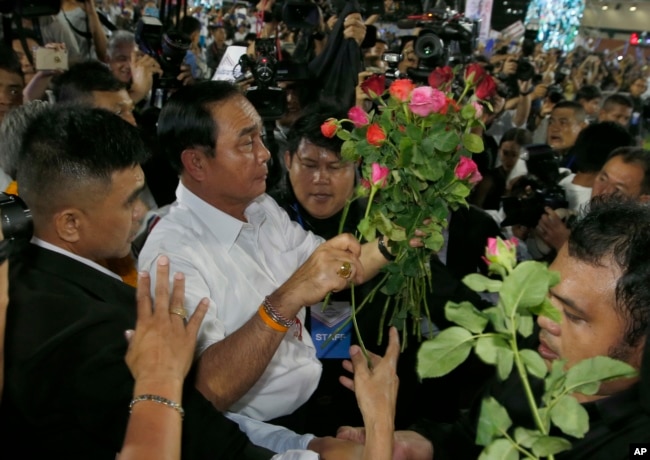
Thailand is a member of the Association of Southeast Asian Nations, and pro-democracy advocates within the trading bloc are paying close attention to the vote, despite its policy of noninterference in members’ internal affairs.
The ASEAN Post, an independent regional digital media company in Kuala Lumpur, recently noted that freedom of expression, peaceful assembly and press freedom had deteriorated since the junta seized power, initiating the longest period of army rule in modern Thai history.
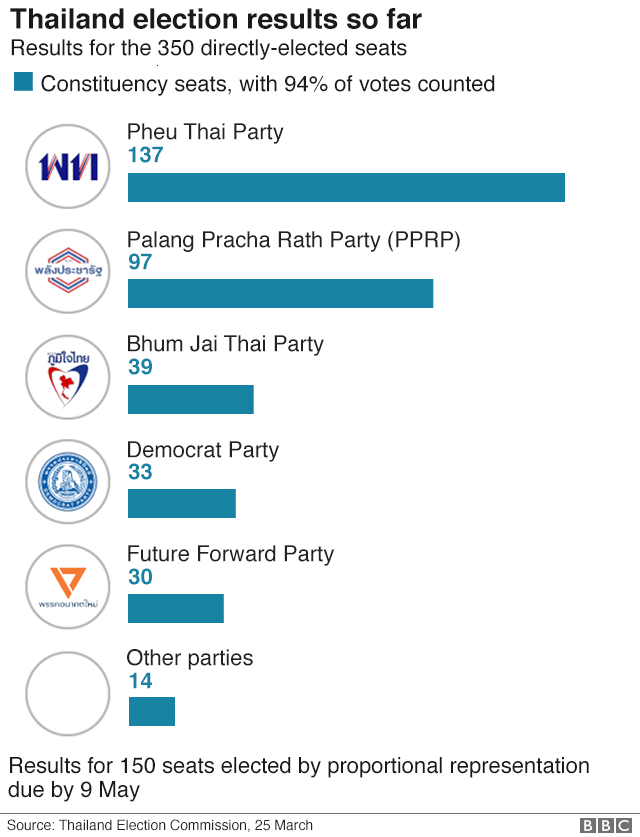
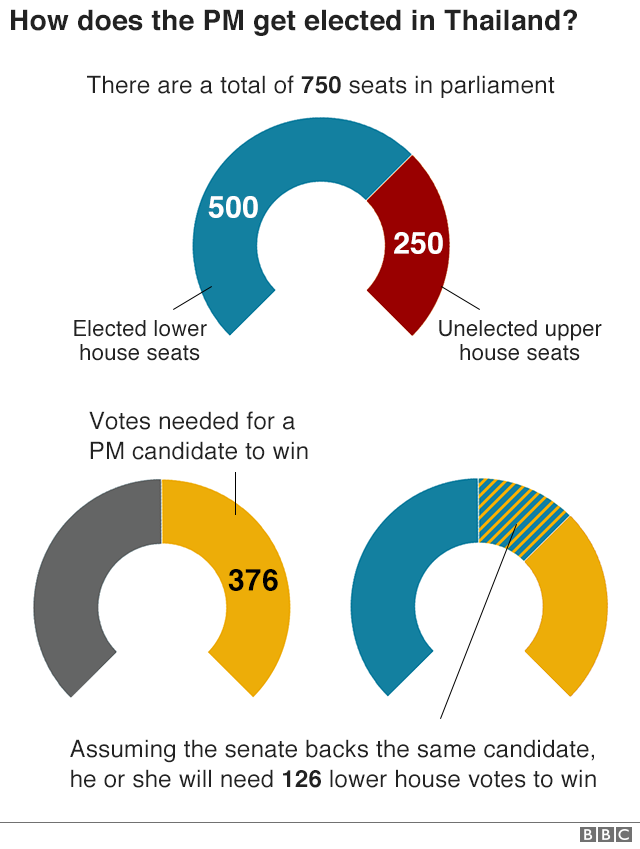
“Several hundred activists and dissidents have since been called national security threats and faced serious criminal charges such as sedition, computer-related crimes and lese majeste [insulting the monarchy] for peaceful expression of their views,” it noted in a recent opinion piece.
The coup — Thailand’s 13th since 1932 — ousted then-Prime Minister Yingluck Shinawatra and caused international outrage. The pending elections, the military hopes, will fix that.
Myanmar’s experience
The election framework echoes the 2015 ballot in neighboring Myanmar, where hopes of democratic freedom were dashed by a military that has maintained an overarching influence on a civilian administration, through its allotted seats in parliament.
A more drastic story has unfolded along Thailand’s eastern border.
Cambodia was returned to a one-party state last year after the main opposition party was banned from competing at elections, media outlets were closed and political dissidents were jailed, raising the prospect of U.S.- and European-imposed sanctions.
Elections will also be held in Indonesia in April, and midterm polls are to be held a month later in the Philippines, where the separation of powers — a cornerstone in any democracy — has foundered amid the government’s war on drugs.
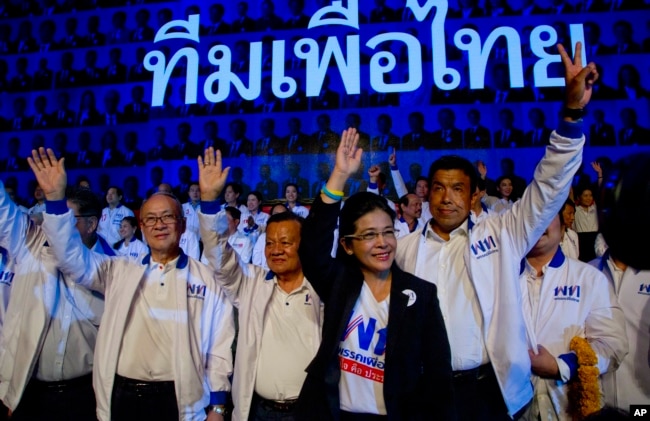
Singapore has been ruled by the same party since independence in 1965. Of the remaining non-democratic countries, communist Vietnam and Laos have initiated crackdowns on dissent, while Islamic Brunei has instituted sharia.
David Welsh, country director in Southeast Asia for the Solidarity Center, a nonprofit that seeks to help build a global labor movement, said human rights were a major concern ahead of looming elections, and that the strong-arm from governments favoring big business were affecting workers and trade union issues.
“The prospects for business and trade are probably pretty good. The prospects for labor laws and worker protection aren’t, although I’ve been pleasantly surprised by what’s happened in Malaysia, so let’s see,” Welsh said.
Bright spot
Malaysia emerged as one the few democratic bright spots among the 10 members of ASEAN after the electorate, which tired of allegations of gross corruption, stunned pollsters and ousted Prime Minister Najib Razak, who is now facing trial.
Continue reading